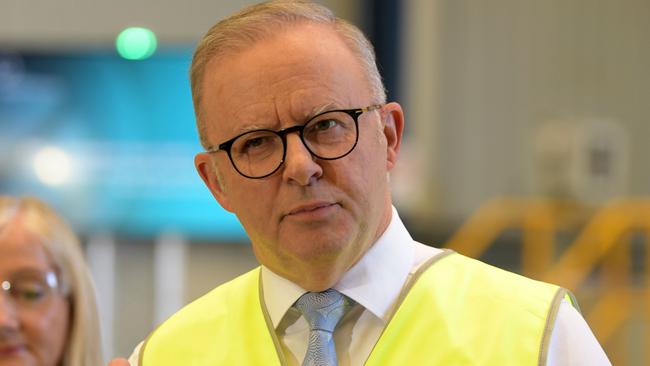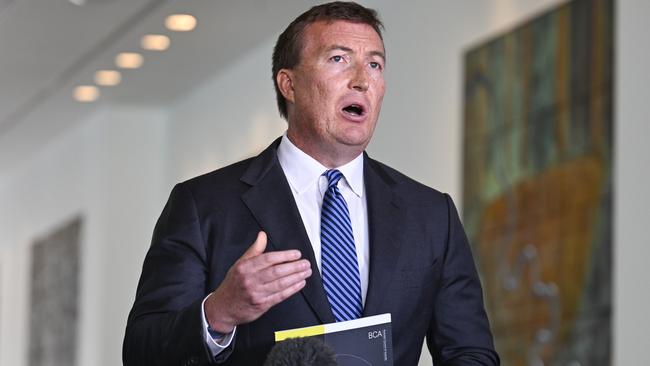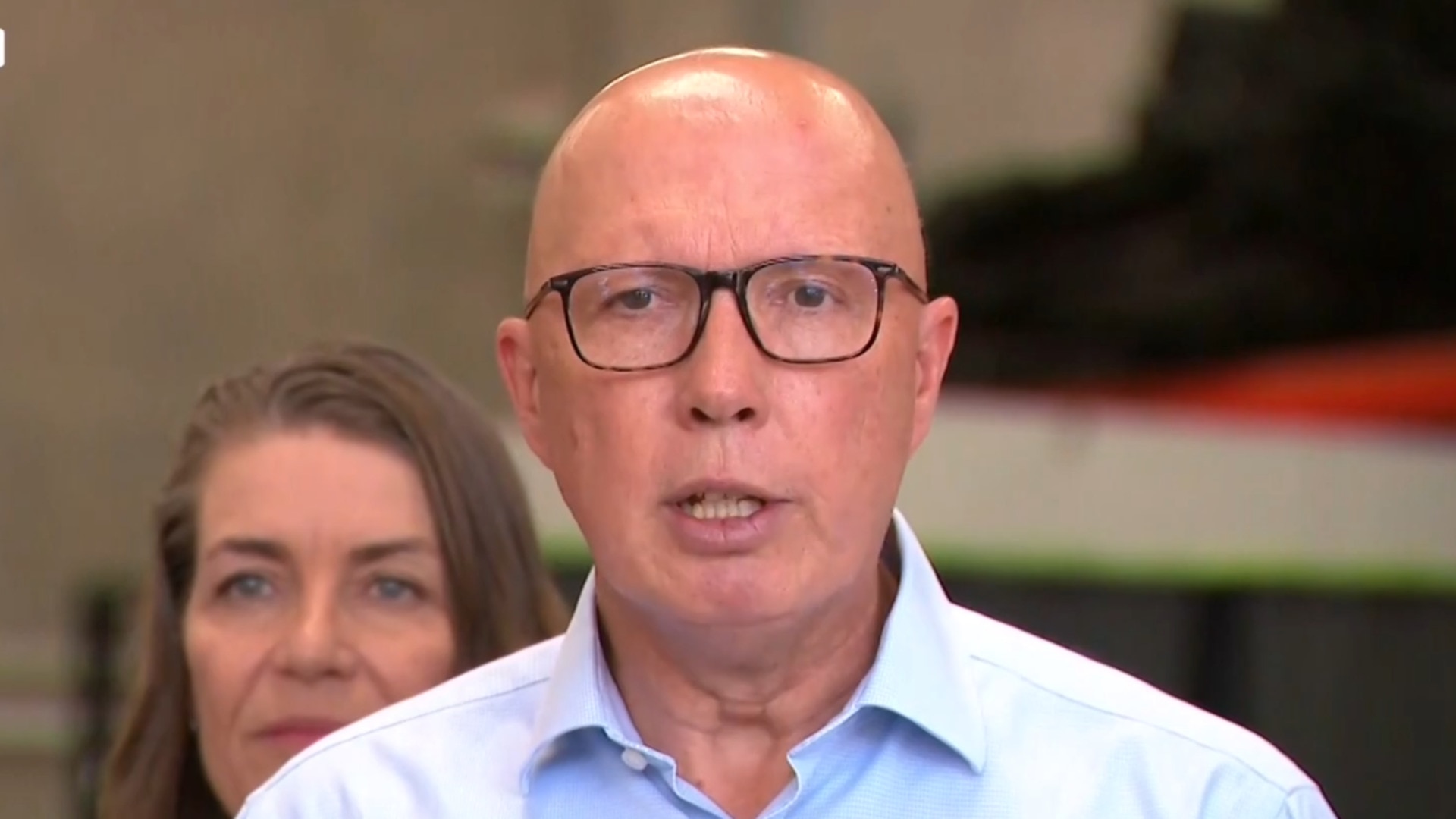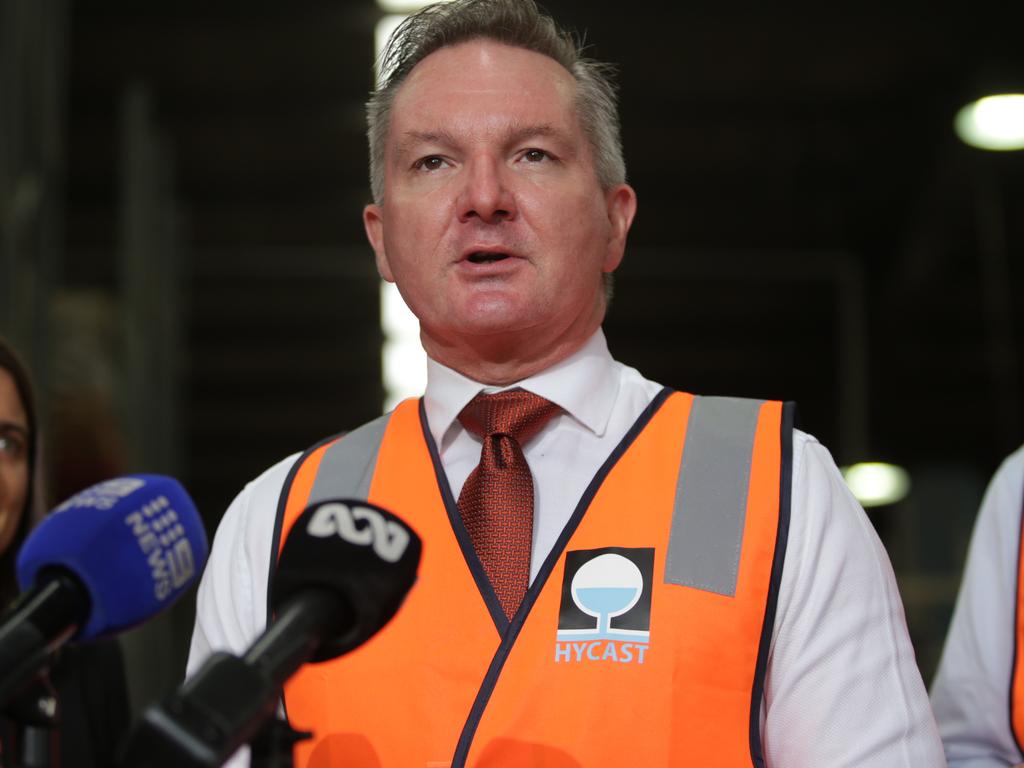Industry accuses Labor of massive energy policy failure ahead of budget
Australian businesses have suffered the sharpest annual fall in gross operating margins in 25 years due to inflation-driven costs, including a 51 per cent spike in gas prices, putting at risk Jim Chalmers’ call for an economic recovery led by the private sector.

Australian businesses have suffered the sharpest annual fall in gross operating margins in a quarter of a century due to inflation-driven costs, including a “staggering” 51 per cent spike in gas prices, putting at risk Jim Chalmers’ call for an economic recovery led by the private sector.
Their troubles are likely to deepen following the energy regulator’s decision to approve electricity price rises of up to 8.4 per cent for businesses from July 1, with industry leaders accusing both the federal and state governments of flagrant energy policy failures.
A deteriorating investment environment has sparked an urgent warning from the peak industry group to the Treasurer ahead of the March 25 budget that the failure to address the underlying cause of inflation is leading the private-sector economy down an “unsustainable” path.
The Australian Industry Group, in a pre-budget submission, has warned that if inflationary impacts on businesses and industry continue to be ignored, “the wave of investment needed to kickstart private sector growth will not materialise”.

With energy prices set to be a dominant cost-of-living issue for the election campaign, the Ai Group also warned that exploding electricity and gas costs would be “growth and job killers”.
New economic modelling showed gas prices for manufacturers had risen by 51 per cent over the past four years.
“Businesses large and small are the constant victims of relentlessly rising energy costs,” said Ai Group chief executive Innes Willox. “All the industrial regeneration policies and strategies in the world are of little value if we can’t do the basics right like keeping the lid on rising energy costs.”
Mr Willox said that over the four years to December last year, the Producer Price Index – a measure of inflation for goods used by businesses – had risen by 18.4 per cent
“For some industrial sectors inflationary pressures have been more severe, with manufacturing inputs rising 30 per cent and construction inputs rising 33 per cent over the same period,” he said.
“Gas prices paid by manufacturers have risen by a staggering 51 per cent which is completely unsustainable.
“We have turned a competitive advantage into a millstone. Exploding energy costs are growth and job killers for business who just want predictability and certainty about their cost base and to know the power will be there when they need it.”

Analysis of national accounts data shows gross operating margins in industry sectors fell from 15.8 per cent in the September 2023 quarter to 14.2 per cent in the September quarter of 2024. This is the steepest rate of annual decline since the series began in 2001.
The December quarter national accounts showed the decline had eased – with gross operating margins at 14.9 per cent, still well below previous years.
“It is not sustainable for businesses to keep absorbing inflation-driven input and wage costs without impacts on investment and employment,” the Ai Group submission said.
“Falling margins impact profitability, reducing the financial resources available as well as confidence for new investment and employment generation.
“Non-mining investment is forecast to decline from 5.5 per cent in 2023-24 to 2.5 per cent in 2024-25, with no recovery forecast across the forward estimates.
“Without a significant moderation in cost pressures on business, the wave of investment needed to kickstart private sector growth will not materialise.”
The Ai Group represents 60,000 businesses employing more than a million workers. Mr Willox said the Treasurer’s call for the private sector to lead the economic recovery was welcomed but ignored reality and continued high levels of public spending were only adding to the problem.
“The private sector drives our prosperity but right now it is under enormous pressure,” Mr Willox said. “On many counts it is shrinking and with that we are losing our capacity for sustainable growth, innovation, competition and productivity.

“No amount of public sector spending can replace that. That massive increase in public sector spend is not only inflationary, it is a temporary mask for what is happening in the real economy.
“It is a model that history tells us repeatedly fails and simply can’t be sustained forever.”
Mr Willox said policy settings should focus on “getting the settings right for the private sector to prosper rather than watching it wither at the expense of bloating nonproductive public sector spending”.
Australian Chamber of Commerce and Industry chief executive Andrew McKellar said the expected extension of the $300 energy rebate in the budget would take pressure off, but it was an unsustainable short-term fix. “At some point that is going to have to run out and prices are going to revert,” Mr McKellar said.
He said renewables alone couldn’t solve issues with energy supply and reliability and more gas generators were needed. “It’s policy failure all round,” he said.
Forecast energy price increases of 8 to 9 per cent in the next year were a very significant impost for households and small businesses.
“Many of those small businesses have already copped a lot, but I think it’s really just not fair to be asking them to be trying to absorb further increases of that order of magnitude,” Mr McKellar said.

Business Council of Australia chief executive Bran Black said that with the government spending-to-GDP ratio at its highest level since the 1980s – excluding the pandemic period – the government needed to pull back on the fiscal levers.
“With the country facing a decade of deficits, it’s critically important to have fiscal rules that encourage spending discipline,” Mr Black said. “If we want to keep inflation down and sustainably fund essential services over the long-term, spending restraints must be adopted. That’s why the government and opposition should cap real spending growth to 2 per cent annually and have a tax-to-GDP ratio of 23.9 per cent.”
Mr Black said fiscal rules provided guardrails to help bring debt under control and reduce the risk of “painful adjustments” through cuts to services or higher taxes.
“Australia needs fiscal buffers, not persistent deficits, if we’re to navigate what are likely to be challenging geopolitical times ahead,” he said.
The Ai Group submission urged the Albanese government to make inflation control and the cost of doing business the priorities in the budget “We note that several household support measures in the last budget, including but not limited to energy bill relief, have reduced the burden of inflation on targeted households,” it said. “However, these measures have come at a significant fiscal impost on the budget, yet have done little to support the impact of high inflation on business, or ultimately address the underlying causes of inflation itself.”
The Ai Group economic modelling shows employment costs have increased pressure on businesses, with wages bill growing 4 per cent over the past year, far outpacing growth in the broader economy.







To join the conversation, please log in. Don't have an account? Register
Join the conversation, you are commenting as Logout